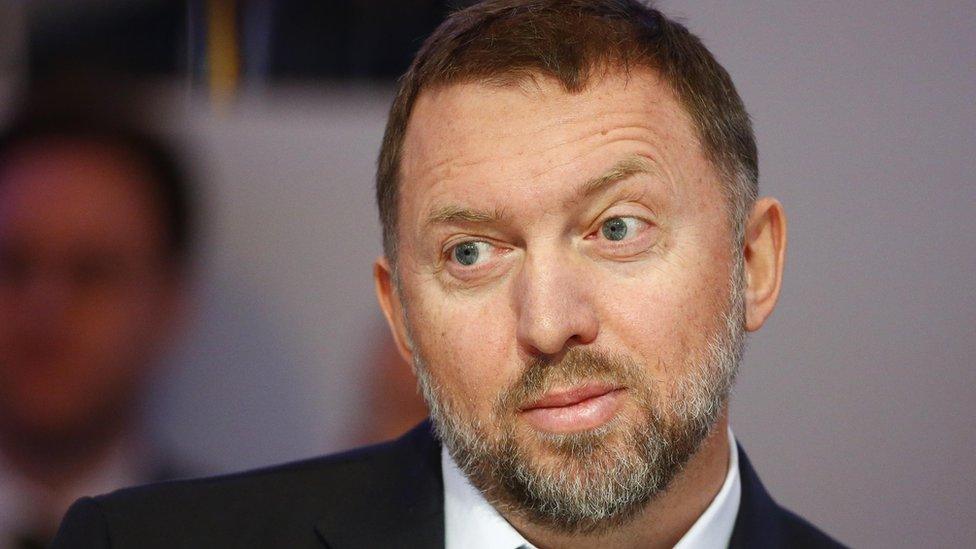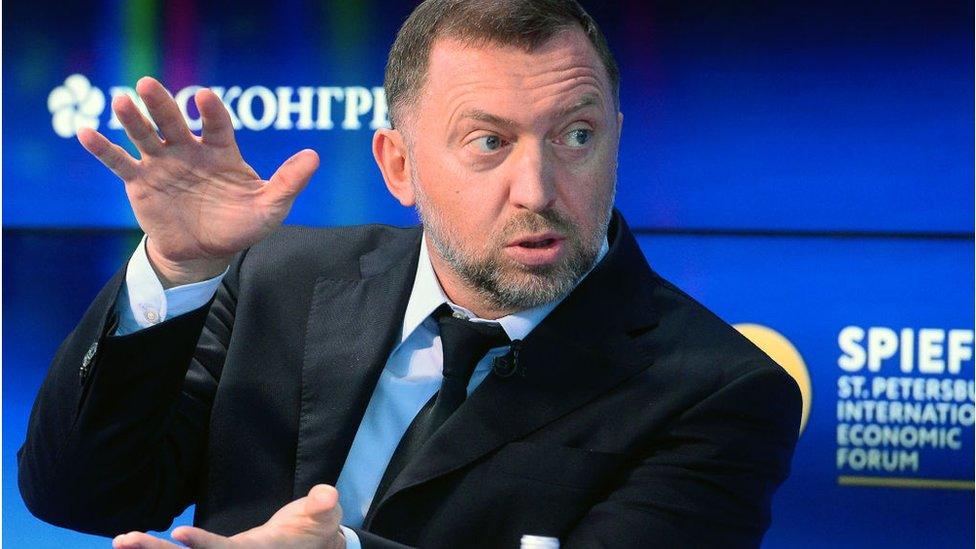US gets out the sanctions howitzer
- Published
- comments

EN+ is controlled by Oleg Deripaska
Last November, Russian energy and metals company EN+ raised eyebrows when it listed shares on the London stock exchange.
This was a close associate of Vladimir Putin raising money by selling shares in London to pay off a loan to a sanctioned Russian bank.
Although perfectly legal and compliant with sanctions imposed after the annexation of Crimea, it seemed to run rings around the intention of the restrictions. Proof to many observers they were tokenistic and ineffectual.
In the last few days, the peashooter has been discarded in favour of a howitzer.
The US decision to place Oleg Deripaska and his entire business empire on the list of sanctioned individuals and organisations has seen Rusal - a company that makes 6% of the world's aluminium - halve in value yesterday and lose another 9% today.
Rusal has said it may default on some of its loan agreements and the Russian government is scrambling to find ways to offer it financial support.
Investors who supported that controversial listing in London of Deripaska-controlled EN+ are nursing losses of more than 30%.
Russian jitters
The aversion to all things Russian has hit the blue-chip FTSE 100 index.
Chelsea owner Roman Abramovich is not on the list, nor is Evraz - the steel company he controls. Nevertheless, shares fell more than 20% on Friday and Monday before staging a modest comeback.
Another FTSE 100 member - commodity trading giant Glencore - is Rusal's biggest customer and owns nearly 9% of EN+. It saw its shares fall nearly 8% since Friday before regaining half of those losses.
Perhaps the UK's biggest interest in Russia is BP's 20% stake in oil giant Rosneft. BP books one-third of its total oil production in Russia and BP boss Bob Dudley sits on a board chaired by Igor Sechin - a close Putin ally and sanctioned person since the invasion of Crimea in 2014.
Company insiders say the latest round of sanctions don't change much for them: "It isn't illegal to do business in Russia - we keep a close eye on the sanctions and make sure we comply with them."
So far, investors' Russian jitters haven't hit the value of the UK's third-biggest company, a staple of almost all UK pension funds.
Collateral damage
As I've said before, it has been possible to find a way through the web of sanctions, but that web is reaching further into the global economy.
As the gloves come off, will manufacturers of cars and planes, for example, think twice before sourcing steel and aluminium from Russian companies?
Commodity markets suggest supplies could be tight, with the price of aluminium seeing its biggest one-day rise for five years yesterday on very heavy volumes of trading.
Coming on top of new US tariffs on steel imports, that will begin to feed through to prices for finished goods hitting companies and consumers around the world.
Turns out it's hard to use a howitzer without causing significant collateral damage.
- Published9 April 2018

- Published13 November 2017